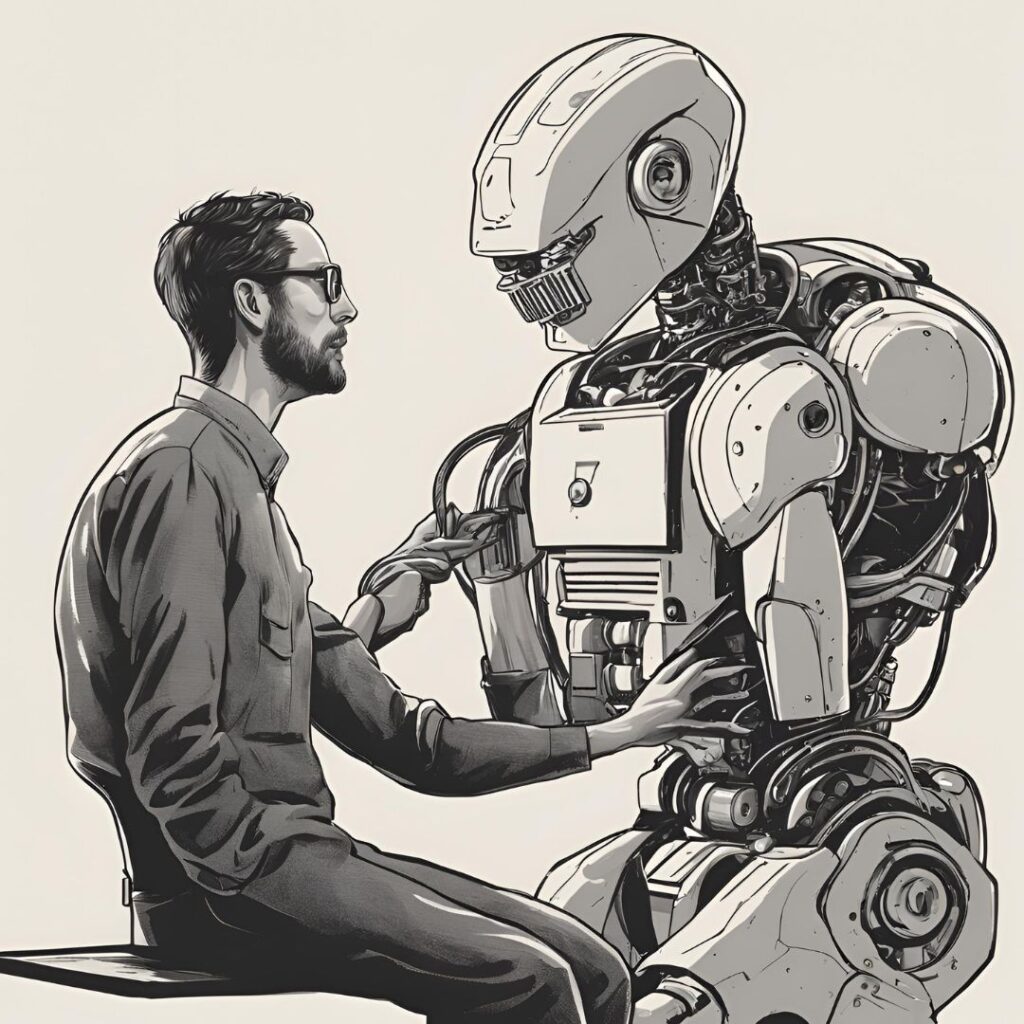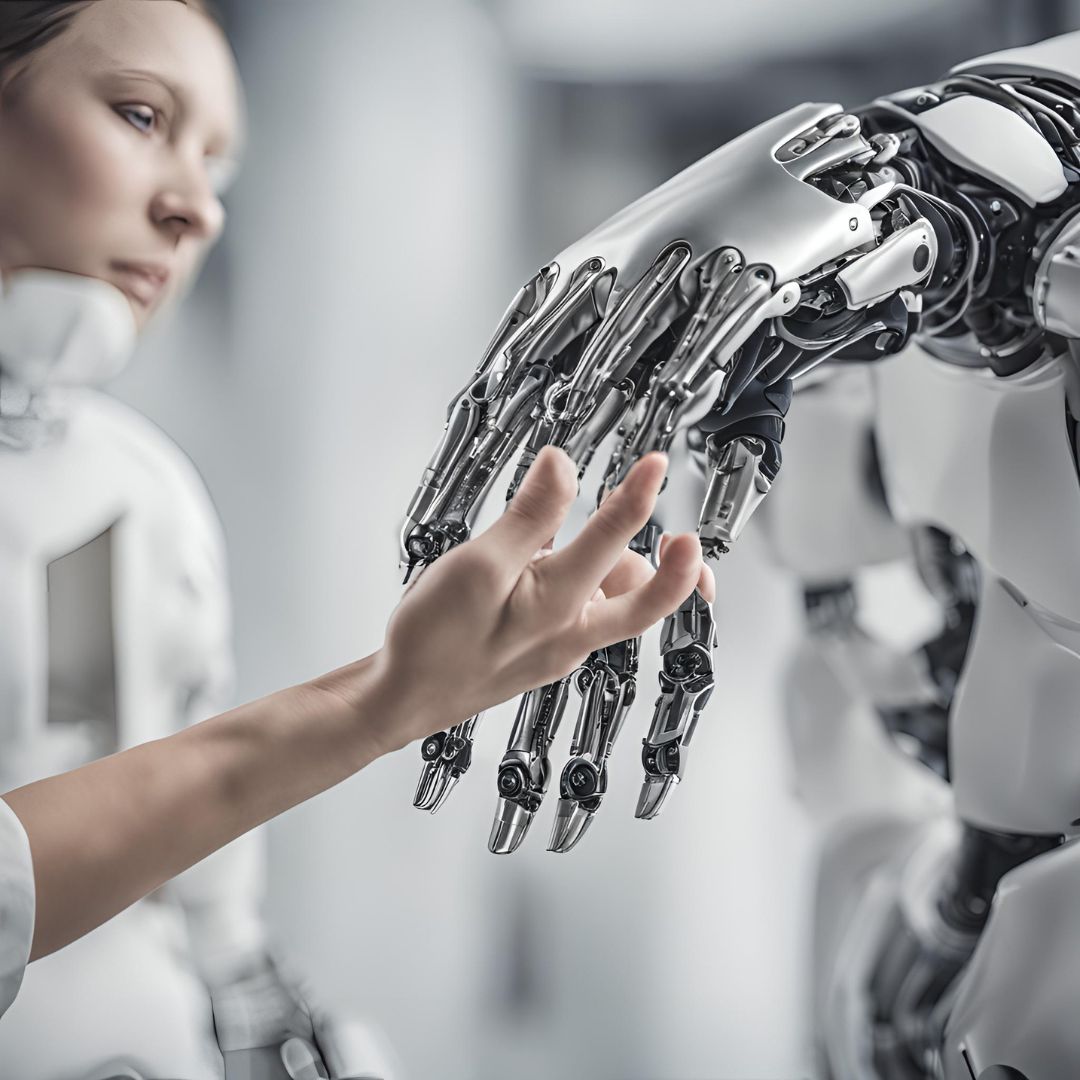Want to listen to this post? Here it is on Youtube: https://youtu.be/EPwTY-vEm2Q
We’ve been kicking the tires of generative AI for a couple years now, trying it out to write stories, create visual artwork, and make speech to text sound more natural than in past models. It’s pretty neat (when it works), and not technically copyright infringement- yet. But we’ve been pretty accepting of its limits because we’ve been buying into the narrative that it’s going to get a lot better. But how do we know that?
Some tools that use AI in order to assist with artistic creation, rather than replace creators, are pretty useful. One example is the background remover on Canva, a visual design web app. I can remove nearly any background from a picture of myself with the click of a button, and it does a better job than I can do manually with a picture in front of a green screen. All that time we’ve spent clicking on recaptchas to train the AI sure has paid off. (Sorry to break it to you if you thought it was just there to make sure no bots got on the website. They had ulterior motives!) But when I try to use tools where I instruct Canva on what I want it to do, such as create a picture that I describe, using it’s own AI tools or outsourcing to others, such as Dall-E, or even seemingly easy creative tasks, like “replace all of the red with blue in this image”, the instructions fall flat, and I have to try over and over, using different wording, and I still end up with a picture that somehow looks like an “AI image”.
Pozotron has created a software program that can check for misreads and pronunciation errors in audiobook narration. This has saved audiobook proofers countless hours, and made their jobs much easier, since they can run the files through the program for a first pass, and then go through and listen while reading the text to find the places that the program missed, as well as the mistakes that a computer would never be able to catch, like the narrator reading the line in the wrong character voice, or reading the wrong heteronym (live vs live, or read vs read, etc.).
So yes, some AI tools are pretty useful, and might help certain people in certain niche professions, but just like tools such as auto correct or spell check, they aren’t perfect, and certainly aren’t world changing.
But nowadays we can’t seem to visit a major website without an AI feature being shoved down our throats.

Many AI tools are ones we have been using for a long time. They just work a bit better now. For instance, screen readers have been around since 1986, and Microsoft and Apple started including them in computers in the early 2000s. While early screen readers were mainly just used by the blind community, over the next two decades, the rest of us became accustomed to robots giving us directions in the car, telling us which number to press on our phone keypads to reach a particular department, and for some, even reading an e-book out loud when no audiobook was available. Now that the technology has gotten a bit better and has brief moments where some people may even be fooled into thinking an actual human is reading the text, many companies are jumping on the bandwagon to try to make it profitable. Meanwhile, most consumers are still using it in the same way. Sure, TikTokers may use a text-to-speech voice to introduce their video, (and they know they aren’t fooling anyone into thinking it’s a human voice), and major audiobook platforms are testing audiobooks created by the new generative AI technology, but ratings are low, listeners still refer to the narration as “GPS voice” in the reviews, and absolutely nobody is raving in online audiobook forums about how much they enjoyed the robot readers of their favorite book. Ok, at least no one who doesn’t work for or own stock in the companies that make the technology. In fact, whenever AI narration is mentioned, the threads are usually overrun with comments about how much people hate it.
It’s hard to predict which technological advances will really take off. Facebook was so sure that VR technology would be the next big thing that they invested billions of dollars into creating the “metaverse”, and even changed the name of the company to “Meta”. It turns out although VR has some niche uses, most people don’t like the idea of a world that exists virtually and requires everyone to wear goggles all day. When Meta scrapped the metaverse idea, they turned to AI.
So what does AI have that the metaverse didn’t have? The number one thing is the name “AI”, or “Artificial Intelligence”. It’s been around in science fiction for decades. Remember when hoverboards came out about 10 years ago? If you had seen Back to the Future back in the day, you might remember reading the headline in 2015, and then being disappointed upon learning that they don’t actually hover. Imagine if the companies who made them said “sure, right now it rolls, but the technology is going to get better and better. Just you wait!” Nobody would believe them, and yet, many people have been freaking out, thinking that the sky is falling and everyone is going to lose their job when AI gets good enough to replace them, which they believe is in the near- not distant, future. While it is true that many people who are losing their jobs are being replaced by technology, it’s not necessarily AI technology. Robots have been replacing a lot of workers in manufacturing, but they are just automating repetitive tasks for the most part. Still a bummer for those who are losing their jobs, but AI isn’t the culprit in most of these cases. The processing power needed for AI tasks is huge, and can be even more expensive than paying humans. Food service workers and grocery checkers are being replaced by self-service stations, but in this case, it’s not even a machine that is replacing the worker, but the idea that the business could save money by making the customer play the role of the employee. (Side note, statistics have shown that store theft is increased by 65% in businesses that use self-checkout, so hopefully the trend of customer-employees won’t last forever!)
Artificial Intelligence, despite its name, really isn’t that intelligent. In order to make any significant advancements from where it is now, so that it truly acts or thinks like a human, we would need to know a lot more about how the human brain works, and answer some of life’s great questions, such as “what does it actually mean to be alive”? Call me a skeptic, but I don’t see questions like this being answered over the next couple years by a group of tech bros at Microsoft.
AI can be useful in certain areas, but I don’t think we will see a world changing AI revolution any time soon. For one thing, just the way it’s perceived by many people as a threat to their livelihood leaves a bad taste in their mouths. I’m not scared of losing my job to it, but I wish I didn’t have to be forced or tricked into beta testing a new AI feature just to use a tech tool that I’ve been using for the last decade. If I Google something and get an answer that came from AI, I have no way of knowing whether the source came from a scientific paper, a satiric Onion article, or some dude on social media being sarcastic. If I do a search for a friend on Instagram, I don’t want AI to pop in and try to help like a golden retriever getting in my business when I’m trying to bring in the groceries.
Thanks for reading!
Rebecca H. Lee
Visit my website at becksvoice.com!
Follow me on social media!
https://www.linkedin.com/in/rebecca-h-lee-audiobook-narrator
https://www.youtube.com/@RebeccaHLee
https://www.instagram.com/beckcentric/
https://www.facebook.com@beckcentric
https://www.tiktok.com/@beckcentric



